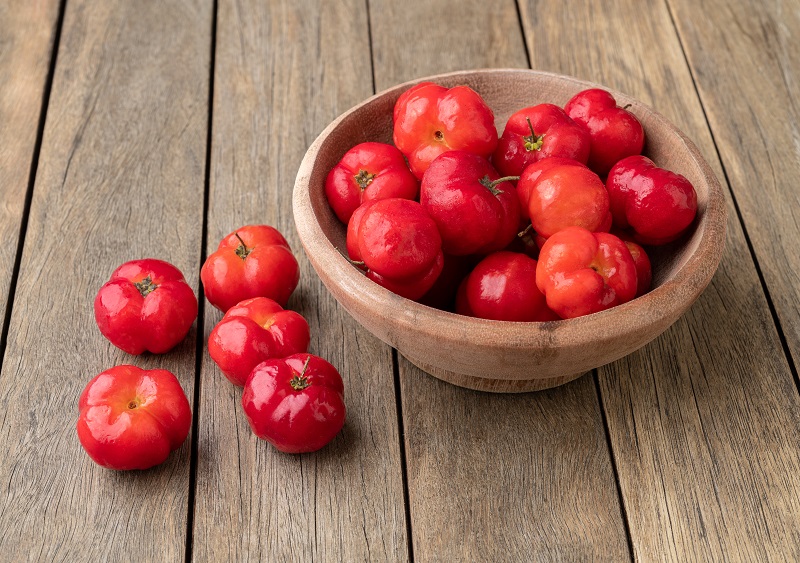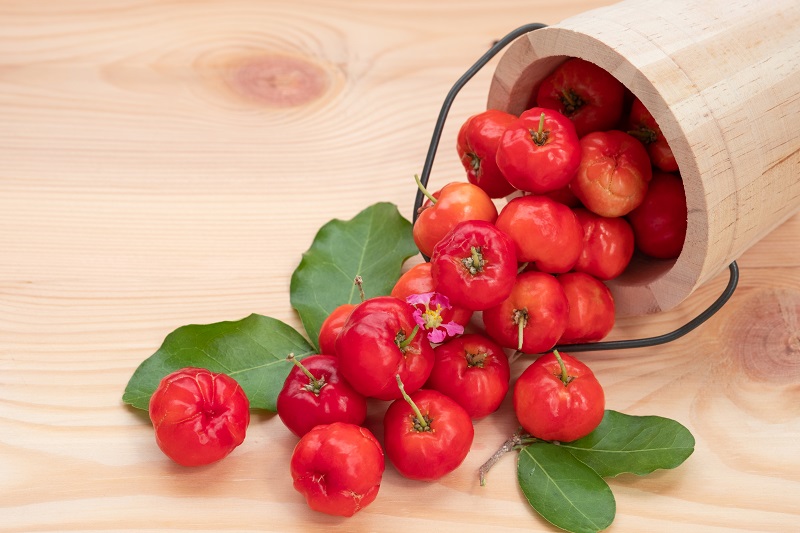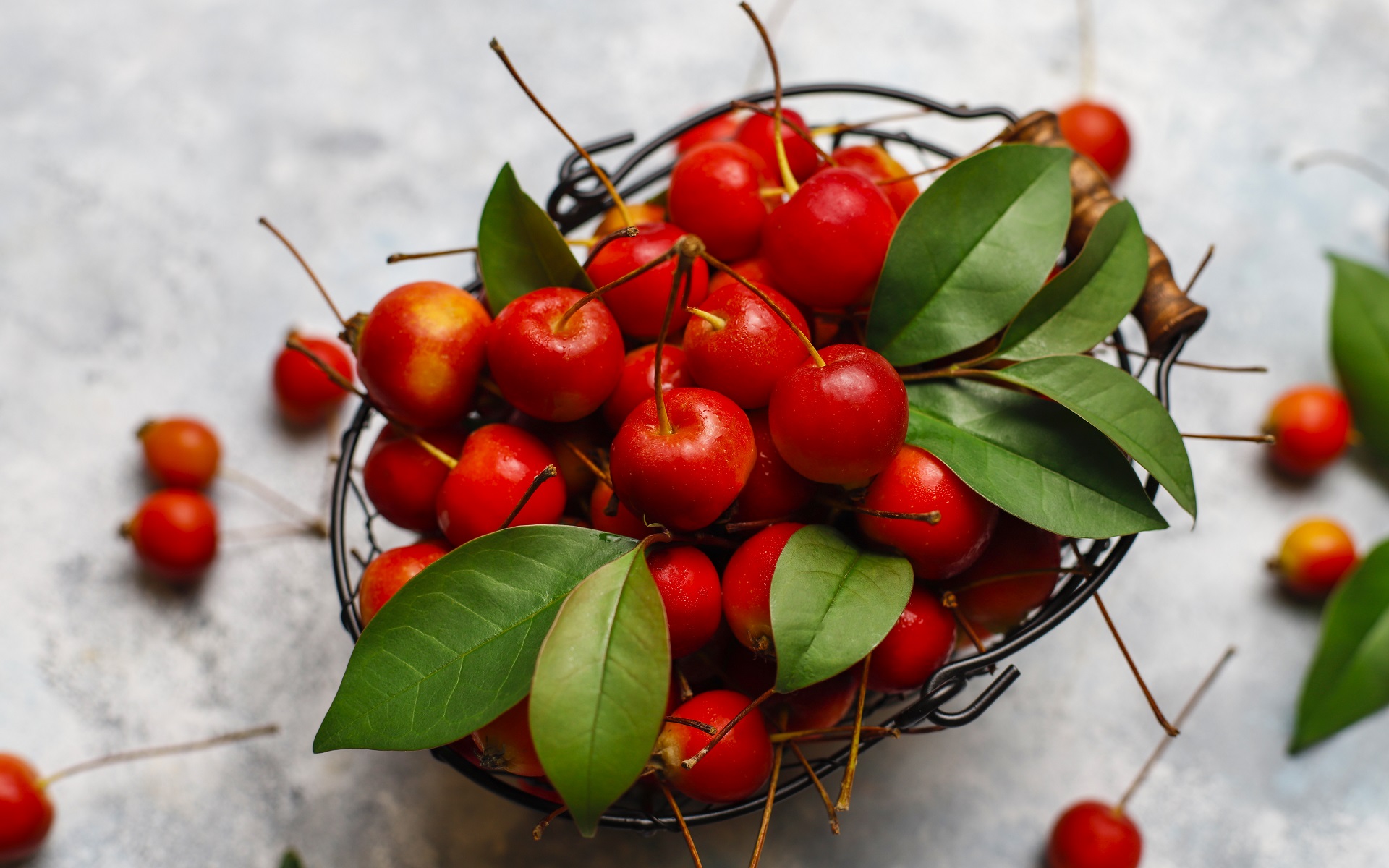Although it is difficult to find fresh acerola in the grocery shop, it can be obtained as preserves, such as frozen mousse. Not surprising, as it is an exotic fruit, thus its travel around the world could be problematic. It is enriched in a variety of foods and teas and is sometimes found in health food shops, e.g. in the form of lozenges, powder or capsules. Known as an immune-boosting product, for good reason. The high concentration of vitamin C compared to other products is noteworthy. This is approximately 1,500 mg in 100 g of fresh weight. It also depends on the maturity of the fruit, with values as high as 3,700 mg in still green fruit. This is as much as twice as much as in rosehips or 30 times as much as in the commonly perceived source-citrus. In addition, acerola has many polyphenols, including various carotenoids that are precursors to vitamin A, anthocyanins or phenolic compounds.

Acerola compounds and their impact on immunity
Vitamin C
At the same time, ascorbic acid activates the immune system to fight pathogens, protecting against the excessive inflammation that can result from infection. Leukocytes need to be nourished with this vitamin, especially when ill. All the more so as infections deplete stocks of this ingredient. This vitamin strengthens the body’s innate and acquired systems. Promotes the proliferation and differentiation of immune cells. Adequate intake of ascorbic acid with diet or supplementation has been noted to reduce the risk of developing an infection and, during the course of an infection, to shorten its duration.
Polyphenols
Polyphenols in the gut can modify the microbiome, beneficially altering the composition and function of probiotic bacteria. These bacteria metabolise the bioactive compounds entering the gut in their own unique manner. It has been known for some time now how the gut microflora plays an important role in maintaining immune function. Its disruption in composition reflects on the whole body, including the immune system. In addition, acerola extract has been shown to have antimicrobial potential, including against Gram-negative bacteria.
Both vitamin C and the bioactive compounds in this tropical fruit have anti-inflammatory properties. Among other things, they can increase the number of macrophages that secrete anti-inflammatory cytokines. Nullifying free radicals in the body also reduces inflammation and prevents, among other things, cholesterol oxidation and other related complications. Polyphenols may additionally support the activity of internal antioxidant enzymes, e.g. superoxide dismutase.

Does the presence of bioflavonoids aid vitamin C absorption?
As ascorbic acid can have a variety of origins, there is some debate as to whether this is relevant to its effect on the body. A study by Uchida E. et al. tested the effect of both vitamin C alone and acerola juice with a natural version. Not only were higher levels of ascorbic acid noted in the plasma tested, but the natural vitamin was excreted more slowly from the urine than its synthetic counterpart. This suggests that some bioactive compounds in acerola positively influence the utilisation of this antioxidant and the body prefers such a package to the isolated vitamin. This shows the wisdom of nature, so if possible, it is best to choose an ascorbic acid kit with fruit extracts rather than without, for a better satiating effect on the body.
Bibliography:
Cieślik A, Gębusia A. Charakterystyka właściwości prozdrowotnych owoców roślin egzotycznych. Postępy Fitoterapii 2/2012; 93-99.
Carr AC, Maggini S. Vitamin C and Immune Function. Nutrients. 2017 Nov 3;9(11):1211.
Silva, N. C., Dourado, P. L. A., & Tosi, M. M. (2023). A review about acerola (Malpighia emarginata DC.) by-products as a promising raw material for the generation of green products. Brazilian Journal of Food Technology, 26
Olędzki R, Harasym J. Acerola (Malpighia emarginata) Anti-Inflammatory Activity-A Review. Int J Mol Sci. 2024 Feb 8;25(4):2089.
Uchida E, Kondo Y, Amano A. i wsp.: Absorption and excretion of ascorbic acid alone and in acerola (Malpighia emarginata) juice: comparison in healthy Japanese subjects. Biol Pharm Bull. 2011;34(11):1744-7.

